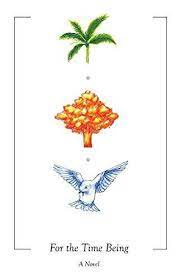By All Other Accounts
Falling asleep wasn’t the problem. He’d never had trouble falling asleep. Why, he’d even fallen asleep once standing up, in the crowded third-class railcar of a train stranded in the no man’s land between countries in dispute, not long after he’d watched two soldiers in ill-fitted fatigues escort a woman by her elbows—one on each side—over a small rise and into what looked to be a stand of trees, evergreens maybe, though the sun was setting beyond them and so it was difficult to be sure, the way the figures vanished into dusk. He could recall the color of the sky beyond, how he would describe it in a poem (“like a distant village burning”), but not the falling asleep itself.
Only upon waking was he aware: the loss of feeling in his legs and the cold metal frame of the window pressed to his cheek, the sour garlicky smell of his own foul breath.
The density of his sleep, the lyricism of it.
Falling into sleep was never the problem. Nor was staying asleep in the days of trains and war. He was young and destined and seldom disturbed. Sleep was comforting, redundant. It had the comfortable redundancy of an old song, a song of glory days, of days of wine and roses, and nights when the moon stretched its welcome light upon a lover’s unblemished thigh . . .
But no longer. In his dotage sleep comes easily but does not stay. It comes swiftly again and again. It comes in fits and starts; it comes in swift dreams and he is drifting in the flood of unwelcome memories, bobbing in the river of sleep like the bloated body of a lifeless creature caught in war’s thaw and tumble, and while he is grateful at each waking to have been so buoyant as to resurface again and again—to find it so easy to fall back into sleep—he knows he is dead to the world, by all other accounts, just the same.
Unlucky Find
We meet our heroine at a yard sale, where the fork for an antique relish dish has lost its silver tint and the elastic waistbands in the stretch pants would have to be replaced. It is a sad affair—staple of rural America—yet Virginia Poe is intrigued by a foreign edition of The Encyclopedia of the Macabre, Vol. I, with its sticky-note annotations (“Sure to Scare ya!”). Suddenly a man—her future ex-husband, perhaps—appears and wrests the book from her grasp, slapping it on the wobbly table. He takes her arm roughly. “Not today,” he growls. “You promised.”
Phillip Sterling’s books include Lessons in Geography: The Education of a Michigan Poet (essays/memoir, Cornerstone, 2024), In Which Brief Stories Are Told (short fiction, Wayne State U Press, 2011), Amateur Husbandry (microfiction, Mayapple, 2019), and five collections of poetry, most recently Local Congregation: Poems Uncollected 1985-2015 (Main Street Rag 2023). His prose works have been anthologized in Best Short Fiction 2017 and Best Microfiction 2024.





